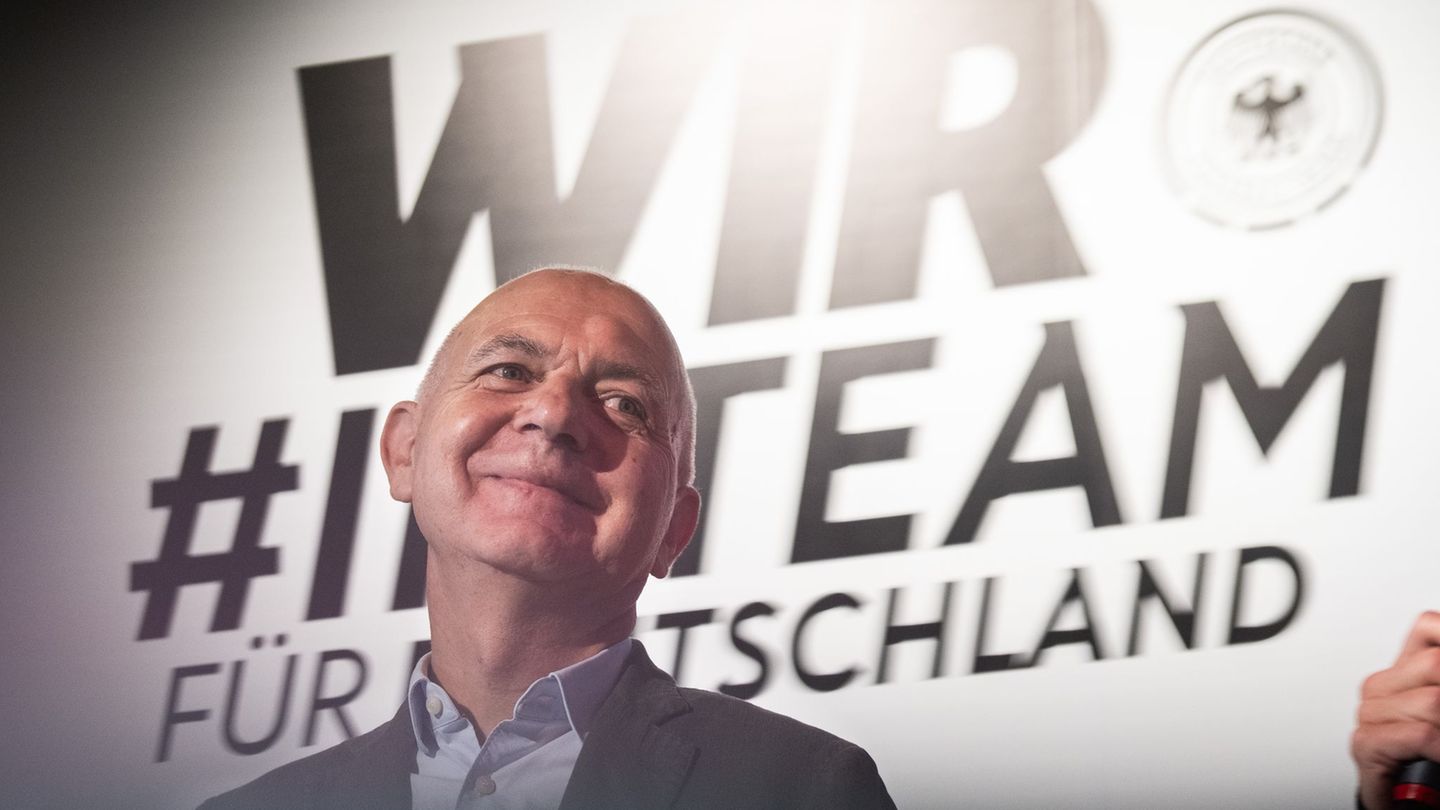After the fifth industrial dispute in the ongoing collective bargaining dispute at the railway, rail traffic is gradually returning to normal. But new, short-term strikes are threatening. The state-owned company wants to avert this.
After the new strike by the train drivers’ union GDL with nationwide disruptions in rail transport, Deutsche Bahn has made a new attempt to resolve the collective bargaining dispute. The federally owned company offered the GDL a resumption of the aborted collective bargaining this Monday. There was a corresponding invitation to the GDL, said a company spokesman in Berlin.
The GDL only wants to accept the offer if the railway presents a new and improved tariff offer, as the union announced. To do this, she gave the railway a deadline of 6 p.m. on Sunday.
After what is now the fifth industrial dispute in the ongoing collective bargaining dispute, rail traffic is gradually getting back on track. The railway announced that S-Bahn and regional transport will be gradually expanded. In long-distance transport, however, the company wants to stick to the short timetable throughout the day. The timetable will not be fully operational again until Saturday. The railway expects “fairly strong demand” for Intercity and ICE trains, especially on Saturdays, but also throughout the weekend.
This time the GDL was on strike in passenger transport for 35 hours. The strike in freight transport began on Wednesday evening and ended at 5 a.m. on Friday morning. With the end of the fifth round of industrial action, the uncertainty for rail customers continues. GDL boss Claus Weselsky wants to announce future strikes with significantly less advance notice than before. It is therefore questionable whether the railway will be able to set up a basic timetable again the next time there is a strike. It is the first time that the union has resorted to such so-called wave strikes in the conflict.
Collective bargaining parties divide several points of contention
Deutsche Bahn has now invited the GDL “to negotiate based on the moderators’ overall proposal”. In the invitation letter, the railway makes it clear that it is not true that the company rejected the suggestion from intermediaries to shorten weekly working hours. Rather, they agreed on February 26th to “go beyond our pain threshold and to complete the negotiations on the basis of the moderators’ overall proposal.”
The mediators had proposed a reduction in weekly working hours in two stages from 38 to 36 hours by 2028. However, this is not sufficient for the GDL in the proposed form. In a letter dated March 8th to the railway negotiators, the GDL was also dissatisfied with the wage increase that had been offered so far and the term of the collective agreement. 30 months is too long. According to the GDL, the railway is also pushing for the elimination of previous holiday choice models, which is unacceptable. After the GDL’s response to the latest initiative, the railway wants to examine and evaluate the next steps, according to company spokesman Achim Stauß.
Appeal to GDL: announce strikes in good time
Stauß appealed “urgently” to the GDL to announce future strikes at least 48 hours in advance. “We appeal to the train drivers’ union’s sense of responsibility and collegiality,” he said. In the case of short-term strikes, dispatchers would have to react at very short notice and try under great time pressure to somehow get trains running and send trains on the route.
In addition, passengers would no longer have an overview of which trains are running and which are not. After all, in the event of very short-term strikes in freight transport, the railway would have to reject large quantities of transports because it was not certain whether they would be able to travel. “In these times, we need reliable mobility and reliable logistics,” said Stauß.
Source: Stern




